|
A Virtual Walk Through Jacksonville History
Stop 19: McCully House
Let’s continue west across South 5th street to the 2-story Classical Revival-style McCully house at 240 E. California Street. When it was completed in December 1861 by builder Ludwig Hartwig, it was one of the most expensive and palatial residences in Jacksonville—based on the number and value of the liens placed against the house for John McCully’s indebtedness!
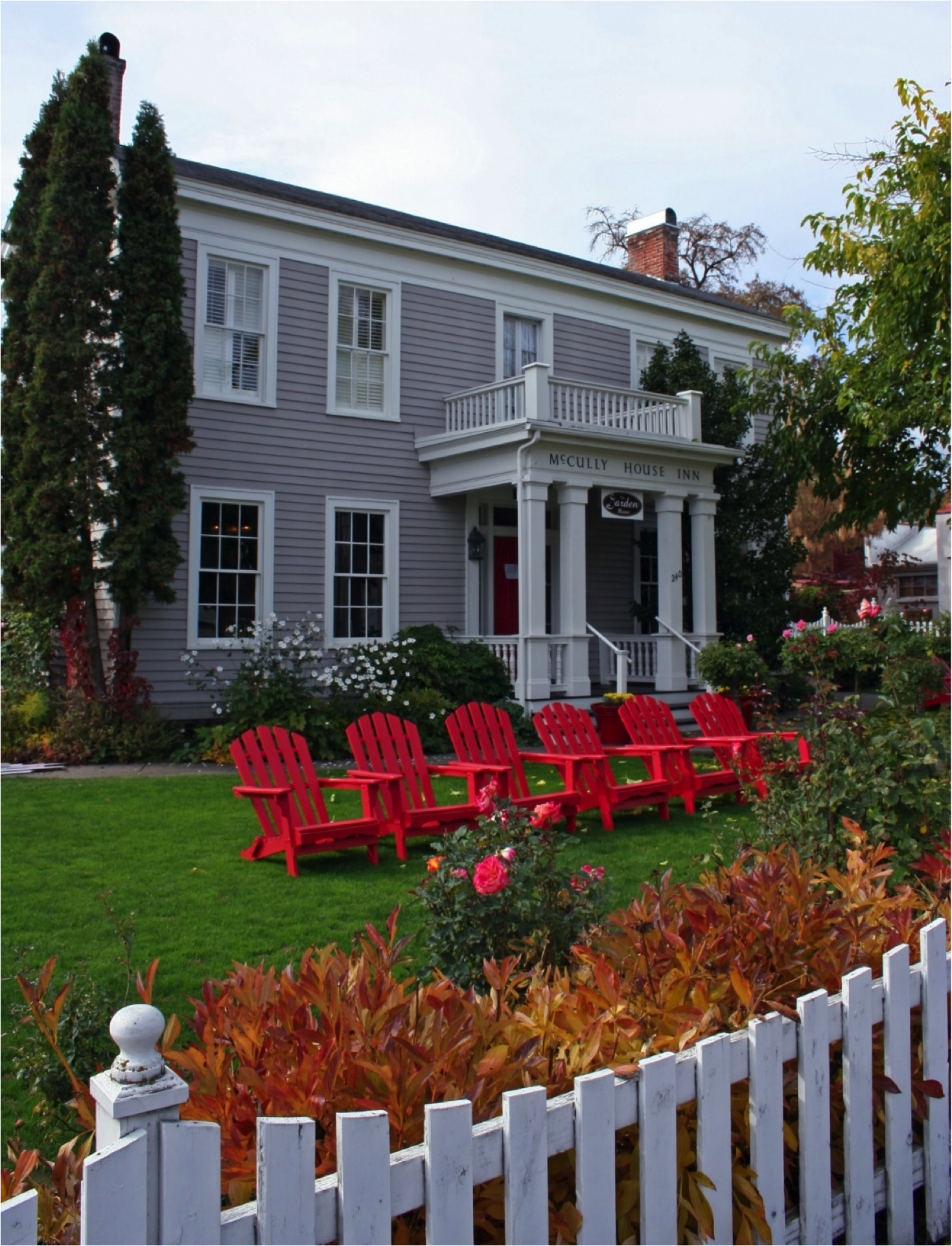 McCully House Inn, 2009. Photo courtesy of Carolyn Kingsnorth McCully House Inn, 2009. Photo courtesy of Carolyn Kingsnorth
Both John Wilmer McCully and his wife Jane Mason McCully were influential figures in the commercial and cultural development of Jacksonville. They were among the first settlers to arrive in Jacksonville in 1852 following the discovery of gold. Jane was the second “proper” White woman in town, and their son, James Clugage McCully, was one of the babies claiming the title of first Euro-American child born in the County (although we believe that rightfully belongs to Cornelius Jasper Armstrong—see Stop #17).
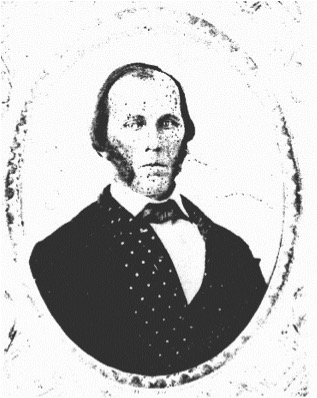 John Wilmer McCully John Wilmer McCully
Tintype. SOHS #6444 |
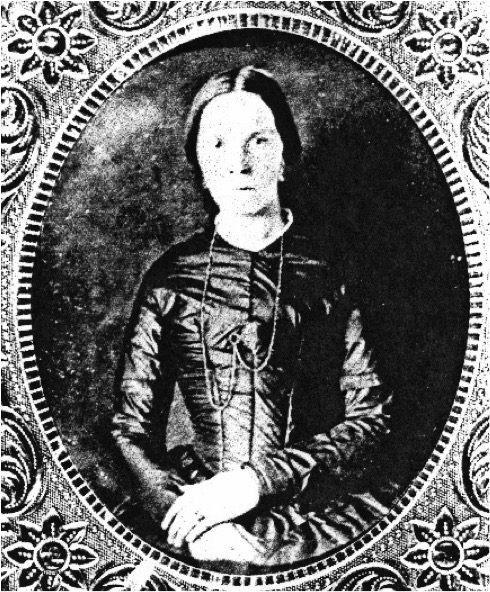 Jane Mason McCully Jane Mason McCully
TintypeSOHS # 6443 |
The McCullys moved into a cabin not far from the center of town on the property where they would later build their elegant home.
John, a trained doctor, hung out his shingle, but there was little demand for his services since the miners were used to pain and discomfort. Jane, a teacher, found there were no children to be taught so she tapped another skill. She baked. She baked bread, cakes, and pies which she sold for one dollar each. Since most miners’ diets consisted of beans and bacon, they eagerly bought everything she could produce. Almost overnight, Jane had a thriving business.
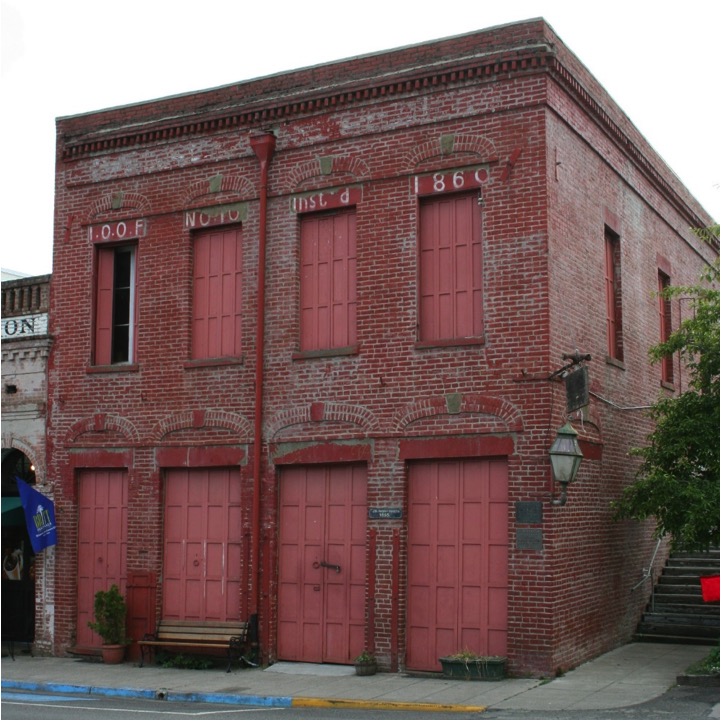 McCully Building-IOOF Hall, 2009. Photo courtesy of Carolyn Kingsnorth McCully Building-IOOF Hall, 2009. Photo courtesy of Carolyn Kingsnorth
In 1853 John was appointed the first Justice of the Peace for the precinct of Jacksonville; settlers began to arrive; John could revive his medical practice; and the couple began to thrive. However, it appears that John took greater interest in speculative real estate than he did in medicine.
John purchased land in Jacksonville and became part owner of the El Dorado saloon and a local dairy. John mortgaged their city lot to build the most costly structure in town—the two-story brick building at the corner of Main and South Oregon streets that now houses the Odd Fellows Hall.
In 1857, the same year McCully Hall was completed, the family’s second child, Mary (known as Molly), was born, and John was elected to the Territorial Legislature, the only Republican from Jackson County.
John now apparently considered himself someone to be reckoned with—head of an admirable family, the owner of impressive real estate holdings, and a member of the Legislature. It would only be fitting for him to build a handsome new house to symbolize his affluence and prominence. Although he must have known his financial position was precarious—there were already a number of liens attached to McCully Hall—the idea of a grand house that would be the envy of the town was too good to resist. Construction of what is now known as the McCully House began, John paying his creditors with promises. And shortly before the house was finished, a third child, Isadora, was born in December 1859.
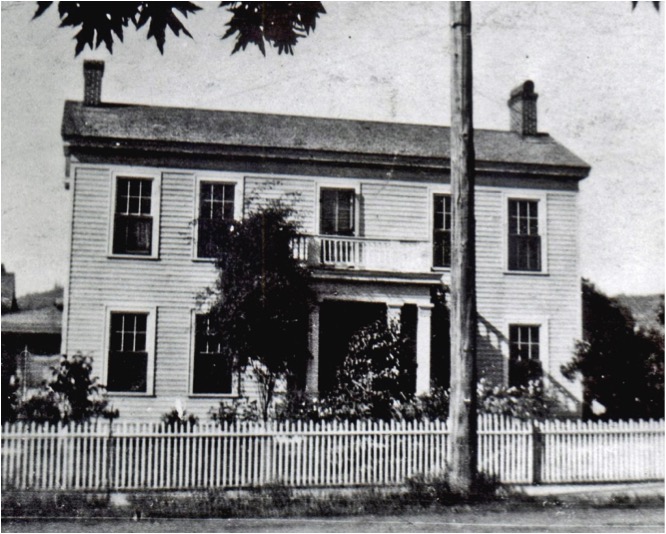 McCully House @ 1910. SOHS #6437 McCully House @ 1910. SOHS #6437
With the family’s move into their new home, John must have felt that his image as a man of stature was complete. However, John’s creditors were neither impressed nor forgiving. Between McCully Hall and the McCully House, claims against John exceeded $7,500. There was no way he could meet the payment demands. By late 1861, he was about to lose his land, his business interests, and his reputation.
In early 1862, John McCully took the stagecoach out of town. Jacksonville never saw him again, and Jane McCully was left with three small children and all of his debts. Jane made it clear to their children and the town folk that they were never to mention John’s name to her again, and Jane set about salvaging her life, her family, and whatever business interests she could.
McCully Hall and the city lot were abandoned to sheriff’s auctions. She had to hang on to the house or her children would be homeless. She transferred the title to her name and sold the interest in the dairy to make a payment on the house. Part ownership of the El Dorado Saloon was clear—it brought in rent that could go towards the bills.
| And it was time to start a school. To provide an interim source of money for curriculum, lessons, textbooks, and supplies, the McCully House became a “boarding house” and Jane once again tapped her baking skills.
In the fall of 1862, Jane opened “Mrs. McCully’s Seminary” in the family’s old log cabin, the town’s first school for girls. It proved so popular that in 1863 she took over the entire house. She was soon persuaded to admit boys as well. Even after public schools were available, Jane provided advanced education for both girls and boys. She was the only teacher the children of many of Jacksonville’s prominent citizens ever knew.
|
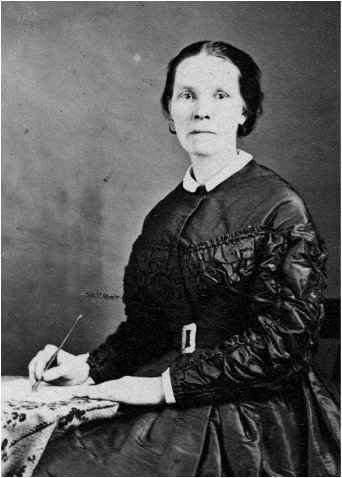 Mrs. Jane McCully. SOHS# 15020 Mrs. Jane McCully. SOHS# 15020 |
Jane continued to live in the McCully House for almost 40 years. She wrote poetry and was described in a newspaper article as “the author of many poems of merit.” She was active in civic and social affairs, an enthusiastic member of the Eastern Star lodge, and an important participant in the Pioneer Society.
It also appears that Jane had a good head for business. Over the years, local papers reported various investments and financial enterprises. She bought lots and houses and she increased her investment in various business interests. Her success was such that her unmarried daughter, “Issie,” never had to worry about finances.
Today, the McCully House returns to one of its earlier “incarnations” as a “boarding house”—or in this case, one of Jacksonville’s renowned bed and breakfast establishments!
|